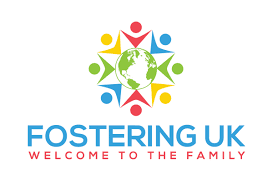When Foster Children Move On?
By providing stability and crucial support, UK Fostering will have assisted a child in getting through a tough time in their life as a foster parent. You will have helped them overcome challenges and develop as a person. Seeing a child move on to a new home can be stressful, but it also gives you a chance to reflect on your shared accomplishments.
When a foster child moves into a new home, the transition can be difficult for both the foster carer and the child. The foster parent could feel as though they have failed in some way, even though they are clear that they are not to blame. The child might be afraid and unsure of what might happen to them. It's important that the foster parent and the child communicate their feelings to one another and say goodbye in a respectful manner.
If you are a foster parent helping a child move out of your home, there are several things you can do to make the transition easier. Open a line of communication with the child about his or her emotions and concerns. Get in touch with the new family so that you are aware of the child's adjustment as well. Last but not least, after the move, don't forget to give yourself some time to relax. Keep in mind that you need to take care of yourself as well because this time can be emotionally exhausting.
Nonetheless, the child may eventually have to leave their foster home. There are several potential causes for this, including a change in the child's needs or the foster family's inability to care for them. Moving is frequently in the child's best interests, despite the fact that it can be difficult for both the child and the foster family.
The possibility that their foster child may someday have to leave them must be anticipated by foster parents. It's important to remember that this choice will be made by social workers and other professionals involved in the child's care; you are not in command of it. But, you may support your foster child through this process and attempt to make the transition to a new family easier.
When foster child in the UK reaches the age of 18, they are no longer eligible for foster care. This may be a difficult moment for both the foster child and the person caring for them when they must say goodbye to one another and adjust to a new way of life.
Foster children may believe they are being abandoned, and foster parents may feel as though a member of their family has died. It's important to remember that the foster parent is not leaving the child behind by transitioning to the next stage of their life.
There are several support networks available for both the foster carer and the foster kid at this time in order to make the transition as smooth as possible.
Each year, more than 80,000 kids are placed in foster care in the UK, and 3,000 of them eventually leave. For a variety of reasons, such as reunification with their family or the transition to independent living, a child may leave foster care. The experience of a child leaving foster care may be both amazing and harrowing, confusing, and upsetting.
According to UK Fostering A respectful farewell is required for the youngster as well as the foster parent. It can make the child feel more secure about what is happening and assist the foster carer in coping with their own feelings of loss. The act of saying goodbye does indicate that things will alter going forward, even though you won't ever see one another again.




Comments
Post a Comment